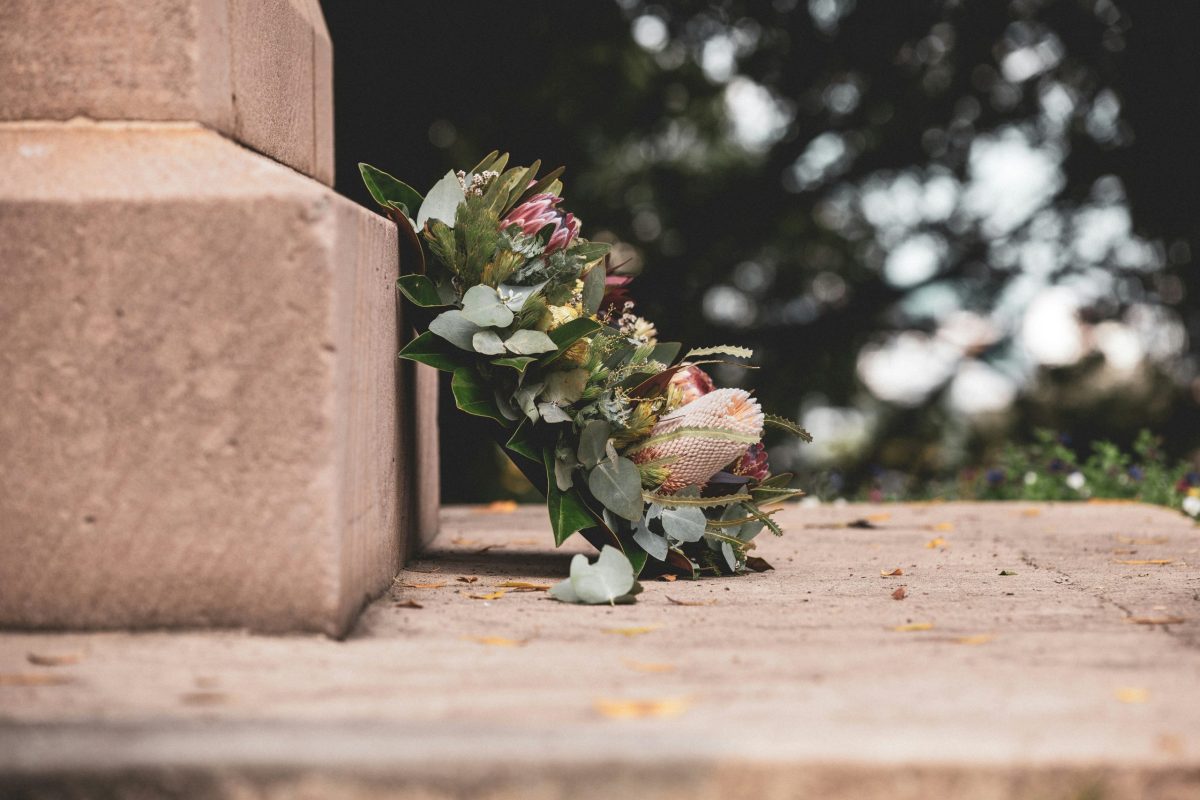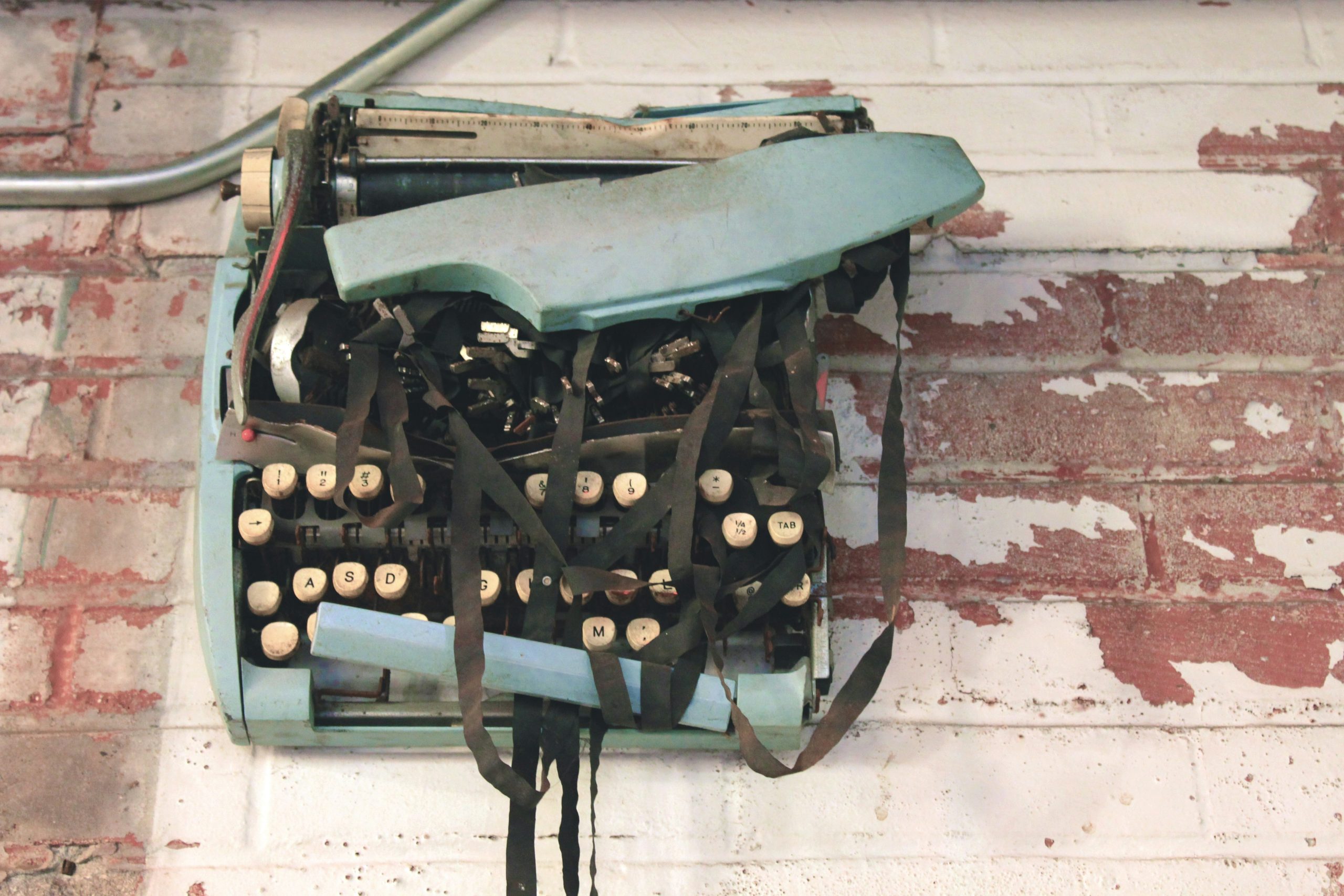Craft
A Tribute to Raymond Carver on His Birthday, by His Brother James — With Never-Before-Seen Family…
A Tribute to Raymond Carver on His Birthday, by His Brother James — With Never-Before-Seen Family Photos by James Carver

I remember my last conversation with my brother Raymond Carver, who had been fighting cancer for the last ten months. He called to tell me that he and Tess Gallagher, his companion for ten years, had been married in Reno. I congratulated him and wished them happiness. I still held the unrealistic hope that he would beat the disease, but Ray knew better. He said to me, “James, it’s time for me to cash in my chips.” I can’t remember what I said, if anything. What can you say when someone you love very much tells you he is dying? He protected me, this kind, gentle boy who was my big brother, my mentor, my buddy who watched over me, who had his arm around me in every family picture. I recalled the times we shared as kids growing up in Yakima, Washington and later as young men in California: Sacramento, Eureka, and the Bay Area. All those years, we had been best friends.
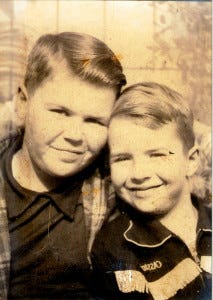
Our father would take us fishing to all the lakes, rivers and streams around Yakima, Washington. In the summer, Dad took us to a lake called Rimrock, about an hour and a half northeast of Yakima. Rimrock was a picturesque lake, surrounded by trees and great for fishing. Dad told us the lake was a crater of an ancient volcano, so deep the bottom had never been discovered. The rubber raft Dad bought at an army surplus store served us all well. We would blow up the raft and drift out on the cold, clear lake. The water was so clean you could drink it. We would fish all day.
The three of us also fished on Rimrock Lake in the winter, when it froze over with a solid sheet of ice. We cut holes in the ice to fish and sat on camp stools in a totally pristine atmosphere under an unending blue sky, with clear crisp air and pure white ice as far as we could see. Eagles circled high in the sky. We watched our father smoke his Camels as we caught glimpses of our own breath. We were enveloped in a blanket of silence and snow. Not until one of us spoke would that silence break.
I also remember all the times we went goose hunting on the Columbia River, that mighty river that divides the states of Oregon and Washington. The river is one of the largest in the United States, running 1,243 miles. We hid behind large rocks on the high bluffs, wearing our warmest clothes and knee high boots to protect us from the rattlesnakes so prevalent there. Thousands of geese sat on islands in the middle of the river. At dawn all the geese would lift off honking, their wings creating a tremendous roar; the early morning sky turned dark with geese, flying to feed in the wheat fields that bordered the river on each side. The bluffs were hundreds of feet high. On windy days it was all the geese could do to get over these bluffs. We could almost knock them down with our shotguns, they flew so low. If the geese escaped to the Oregon side our day was over, yet the drive from Yakima was always worth the trip.
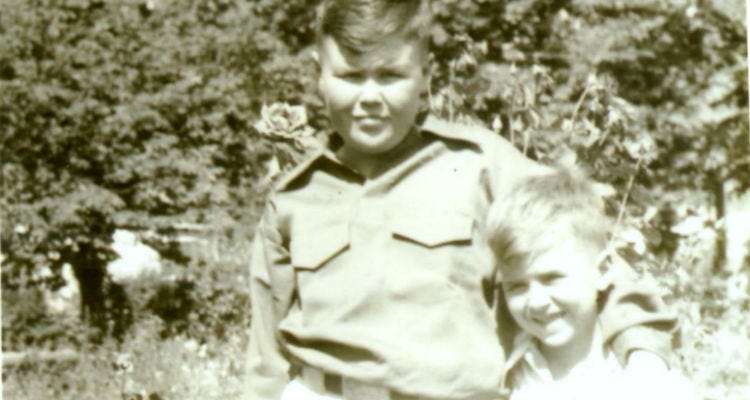
In the winter of 1961, we were all living together in Eureka, California: me, my parents, Ray, and his wife Maryann. Ray asked me to drive to San Francisco with him. He wanted to see a play by the Russian author Anton Chekhov. Ray admired him so much. I readily accepted because I had never been to a city and was anxious to see San Francisco. We saw “The Cherry Orchard.” It was memorable for both of us. Later we made another trip, to see Chekhov’s “The Three Sisters” at the old Actor’s Workshop, a superb theater. This time we drove my 1956 Thunderbird convertible. Ray loved driving it. He took it on several trips to Reno with Maryann.
Ray and I had a great time in San Francisco. We’d go out to eat, walk around seeing the city, and watch foreign films. We liked Ingmar Bergman and Fellini.
We always had much to talk about. Ray let me read many of his short stories when he first finished them. He valued my opinion and would ask, “James, do you really like it?”
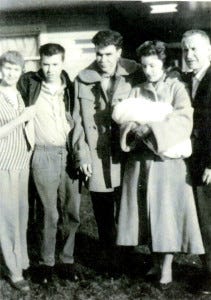
I owe so much to Ray for my early education. He exposed me to the classics and great literature, and led me to my first real experience with theater. Ray became my mentor and encouraged me to pursue a higher education. He introduced me to Russian authors and a wide range of English, German, French, and contemporary authors of the day, including James Baldwin and Norman Mailer. Jack Kerouac was one of my favorites. I read On the Road over and over. Ray became the greatest influence in my life, opening my eyes to the world. I learned so much from him.
I remember the years we shared living together in Sacramento during the mid-60’s. I was going to junior college and living on student loans. Ray had already graduated from college but did not work much. One of his few jobs in Sacramento was working at Mercy Hospital in housekeeping. He worked three or four hours in the evening but was paid for eight. We both had nothing but spare time; we continued to spend many hours hanging out together, talking, reminiscing, and drinking. We would get in the car and drive with nowhere special to go. We talked about all the moves we and our parents had made looking for happiness. We drank from a bottle of Ten High Bourbon we kept in the glove compartment. One of us would say, “Wait until spring.” The other would say, “And things will bust wide open,” meaning at last, everything would be better for all of us. We both would break into laughter. It was a private joke which we never forgot; Ray mentioned it a year before he died. We always had the ability to laugh at ourselves and our failures.
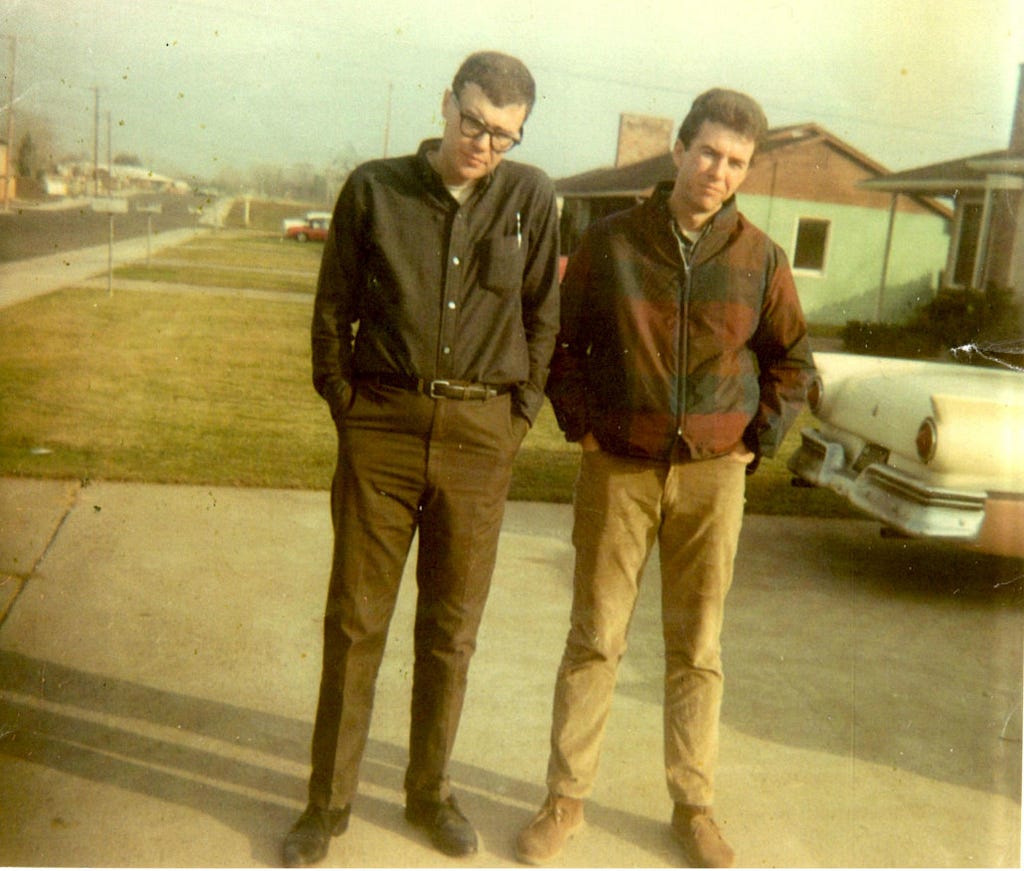
Our mother was quick, energetic, and industrious. While our father worked full time, she often worked as a waitress, in canneries, or in retail. She also managed a hat shop in downtown Yakima for a period of time, back when hats were popular for women and men. She was very capable, and generally ran the shop by herself. Mom worked to buy things for the house, not to put food on the table (that came later, when Dad got sick). She loved her husband and boys. She was a great cook, kept a clean house, and dressed Ray and me in clean, pressed clothes. All one has to do is look at the hundreds of photographs taken of him, especially the ones when he was very young, at the time when our parents were their poorest, to see how well cared-for he was. You won’t see a better-dressed child.
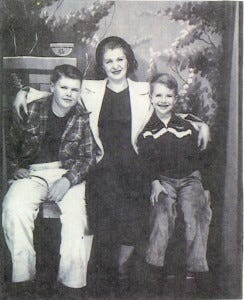
Our mother was pretty, with a good personality, a sense of humor and social graces. Like our father, she was smart in many different ways. Her parents taught her good grammar; consequently, she always spoke well and correctly. Luckily, she passed it on to Ray and me. I have read that some people in Yakima thought my mother was a little “peculiar.” If she had been less “classy” and more common, they might not have thought her peculiar. Mom, along with all her good qualities, had a quick Irish temper.
In Yakima, we had the best years of our family’s life. Our decline began in 1956, the year our father quit the Cascade Lumber Company in Yakima. He had been there for fifteen years or more, never missing a day’s work. Up until that moment, dad always paid his bills on time and provided his family with a good living. He was responsible, working since he was fourteen or fifteen years old and supporting his parents when they needed his help. Our family was living in a nice bungalow on Summitview Avenue, the better side of Yakima. We were settled, happy and doing well. Then dad’s brother Fred, who had been an institution at Cascade, was fired.
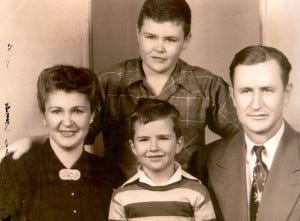
Our father quit Cascade and accepted a job as a saw filer with his brother, Fred, in Chester, California. That move started the decline of the Carver family, a slow insidious unraveling that cost all of us almost everything. Dad’s health began to deteriorate when he got blood poisoning from a saw while working for the Collins Pines Lumber Company in Chester. It caused our mother grief and hardship, forcing her to work full time to support the family when my father became too ill to work. It greatly affected my life, as I was in and out of many schools, with no roots, no friends and no permanency. I had wanted to attend the University of Washington, in Seattle and had taken all necessary preparatory courses in high school. If we hadn’t moved to California, I most likely would have graduated from the University of Washington, with my father’s help, and lived in Seattle. The move also affected Ray and Maryann’s life together for many years into the future. If Dad had not left Yakima, he might have been able to have helped them financially; maybe their lives wouldn’t have been such a painful financial struggle for all those years; it may even have averted Ray’s alcoholism.
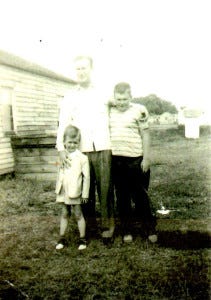
Ray and I lost our beloved father in Crescent City, California, in June of 1967. Dad was working as a saw filer for Simpson Timber Company. The night of his death, he ate a big dinner and went to bed early. He didn’t wake up the next morning. Mom found him cold and blue. The doctor was called. Dad’s heart had failed; he was pronounced dead and taken to the local morgue. Fortunately, I was with my mother, between college semesters. We were both in a state of shock. We immediately called Maryann in Sacramento. She called Ray, who was in Iowa, enrolled in the university to work on his master’s degree. He withdrew from school and came to Crescent City. After arrangements were made, we all followed the hearse back to Yakima. It was our father’s last journey.
I remember standing with Ray before the open casket, both of us weeping. Ray took a pack of cigarettes from his pocket, placed them in Dad’s shirt pocket, and said, “Dad, you will need these on your trip.” Our father was cremated the following day. The night before, I remember Ray and I drinking straight vodka and cursing God for letting our father die. We loved this man so much; a piece of our hearts was lost forever. It would never be the same again. We could not even talk about his death for years to come.
Before his success, Ray was often depressed because of his financial problems, and he didn’t have much work. He never had a serious job, not because he was never offered one, but because he only wanted to write. Through the years of their marriage, Maryann had worked to support the family. Then, in 1967 he accepted a good job with Science Research Associates, in Palo Alto, California. I was working not far away at the time, in Fremont, California, for General Motors. Ray came to my apartment on weekends to visit. We had long conversations about his unhappiness. He told me he didn’t like his job at SRA. He felt his family obligations were holding him back from what he really wanted to do, and that was to write.
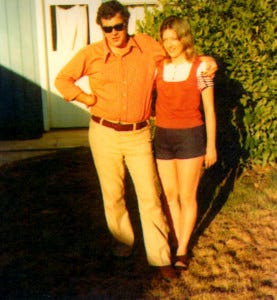
Although they loved each other very much, Ray and Maryann’s life together never really improved. They were separated in 1978, after several extramarital affairs, alcoholism and bankruptcies.
I saw Ray less after the breakup of his marriage, his meeting Tess Gallagher and his battle with cancer. But I am so grateful that his last ten years were good years for him, “gravy” as he called them.
Early in the morning on August 2, 1988, the phone rang. It was Tess Gallagher. She said simply, “Your brother is dead.” I felt heavy with sadness. I had been expecting the call, but I could never have been prepared. I thought of my father, and knew how saddened he would have been had he lived to see his first son die so young and with so much promise remaining. I thought of our mother, and the love and support she would need from me to get her through this.
Our beloved Ray was gone.
At the end of our last conversation, Ray said, “Goodbye, Bud.” He had never called me Bud in the past. It was what our father and his brother had called each other. It was an affectionate term between them, and I knew Ray meant it that way. It was his loving way of saying, “So long.”
Everyone seems to have an agenda when writing about my brother. Some want to cast Ray in a role that furthers their own academic or personal objectives. Others who have been close to him want to ride his coattails or claim some credit for his success. Most write only what they have read or been told by others who did not know him or his family. I am sure that my brother’s legacy will endure. I am also sure that the distortion of his life’s story will continue with his legacy. Ray is partly responsible; he was a born storyteller who would exaggerate the dysfunction in our family to embellish his autobiography.
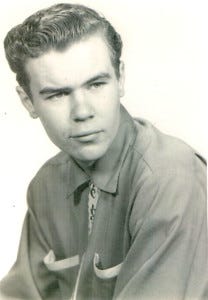
I often read Ray grew up in a drunken, dysfunctional family of “ne’er-do-wells” with ignorant, uninformed parents. He has been portrayed as abused and neglected like a character in a Charles Dickens novel, who somehow managed to pull himself up out of the muck and mire of a bad childhood to become famous. My father’s drinking has been greatly exaggerated. He did not drink every day, as most alcoholics do, from morning until night, as my brother did.
None of the writers except Carol Scklenicka has ever contacted me for the truth. Carol’s biography, Raymond Carver: A Writer’s Life, was published by Scribner in November 2009. Carol interviewed every relative of Ray’s, as well as almost every person who has ever known him from childhood to his death. Her biography is the only serious and credible one written so far. I’m sure it will stand the test of time. I have learned so much from Carol’s book that I did not know about my brother. I did not realize the extent that alcohol had consumed his life, and the violence later connected to it. Our lives had gone in separate directions during this time.
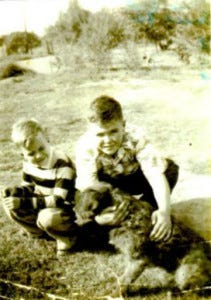
My brother’s life has been sliced, diced, analyzed and dissected. The apparent consensus is that he rose to literary prominence despite drunken parents and a deprived childhood. That is false, and Ray himself is responsible for much of this misinformation. Many of his stories were based on personal experiences and the characters were drawn from people he knew, including his family. However, little of what he wrote was factual. He would alter details to make the story suit his own creative purposes. For example, it has been suggested that Ray based the story “Elephant” on me. But “Elephant” is a fiction built around a few facts. I did borrow money from Ray, as he sometimes borrowed from me. It was during a time when I had missed a lot of work because my wife was very sick. He asked me to pay our mother back instead of him, and I did; in the story, the character of the brother never pays the debt..Ray also wrote an essay on our father, “My Father’s Life.” Not all of it was fiction, but it was certainly not a true biography of our father and family. I am the only one who would know that. He changed much of it to suit himself, although a reader would believe it all to be true.
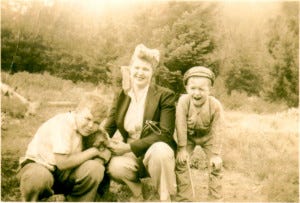
Ray embellished his childhood in interviews as well as in writings. He misrepresented facts, making our home life seem worse than it was. Perhaps he wanted to make his climb to fame appear more remarkable, or perhaps alcohol abuse clouded his memory. I do believe Ray appreciated the love and care our mother and father gave him, and the quality of time spent with him. His good character, sense of ethics, humility, and compassion were traits given to him by his parents. Dustin Hoffman, in an interview on Inside the Actors Studio, said that when he acts, his characters are drawn from his family: his father, his mother, his brother. In essence, that’s what Ray did. He drew from his family in his writing, because he was “made up” of his family — that’s who he was. Our parents should be revered, appreciated, and praised because Ray was an embodiment of each of them. As much as I love Ray, he was not the good father his own father was. His drive to write took priority over everything. He put his self interests above his family’s needs. Alcoholism, pursuit from bill collectors, family discord, and bankruptcies were embarrassing and bad examples he set for his children.
One biography states that my father was an alcoholic who died at the age of fifty- three. This suggests that alcohol is what killed my father, when my father actually died of a heart attack in his sleep. The biographer also says my mother was no stranger to domestic violence. Again, this is misleading, suggesting that my dad abused her. John Updike mentioned my parents in his tribute to my brother at his memorial service at St. Patrick’s cathedral in New York in 1988. He said our parents had a drinking problem. On the contrary, our mother drank only occasionally. Updike innocently picked that information up from others. This is how incorrect information perpetuates itself. If a lie is told often enough, it becomes the truth.
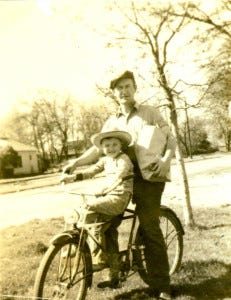
In the book Carver Country Tess stated that Ray had grown up in a home where only Zane Grey books were read. True, our house did have Zane Grey books. However, there were many other books to read. We had no great literature or contemporary fiction of the time, but we had books. Dad liked adventure books and magazines and kept many in the house. He had a collection of Edgar Rice Burroughs’s Tarzan and the John Carter of Mars series, also from Burroughs. He had books on the Civil War and on President Roosevelt’s administration. Ray and I read all of Dad’s books. We also read the adventure magazines. Several times a week, Dad told us great stories. He was a marvelous storyteller with a very creative imagination. He made them up as he went along. Ray and I were mesmerized before he finished. I believe Dad’s stories helped motivate Ray’s interest in storytelling and his desire and need to write fiction.
Our parents wanted us to have better opportunities than they had. That is why Dad paid for Ray’s writing course, and an art course for me. I never heard Dad say that he wanted to teach us the saw-filing trade, or that he wanted us to follow in his footsteps. Neither of us showed any interest in his trade, and if we had I am sure he would have discouraged us. I heard Ray say in an interview in 1983, for the American Audio Prose Library, that he was expected to go into the sawmill industry. This is absolutely not true. Dad had wanted a formal education for himself, but was unable to afford one. He certainly wanted no less for his sons. Ray was altering the truth to his own purposes, fictionalizing his autobiography.
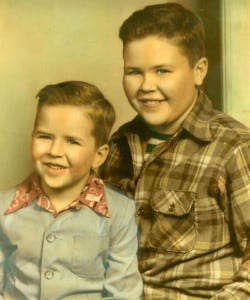
I miss my brother very much. I loved him and respected him enormously. I believe he was a true genius to write everything that he did about the way people truly are with one another. We can’t really get inside the other person’s mind to see how it ticks; we can never know the true feelings one may have for another. We can only be guided by the things said and the feelings shown to us by the other person, and believe it to be true. Ray captured the complexity of those relationships, in love or outside of love.
Ray is gone now. It breaks my heart to remember our last words. He had never called me Bud in the past. I knew he would never see me again. I won’t forget you, my brother, my friend. Goodbye, Bud.
James
Your loving brother
Copyright © 2016 by James Carver. All rights reserved.






